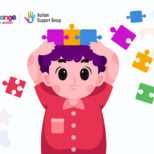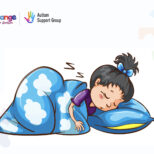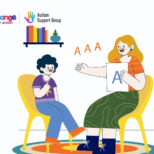School Readiness Program
A school readiness program in ABA (Applied Behavior Analysis) therapy is designed to prepare children, especially those with autism or developmental challenges, for a successful transition to a school environment. Here’s an overview of a school readiness program in ABA therapy:
- +91 0 9901880396
- bechangeaba@gmail.com
- Our Branches
- Vignannagar / Whitefield
**1. Individualized Assessment:** The program begins with a thorough assessment of the child’s skills, needs, and challenges. This assessment helps identify areas where the child may require support in preparation for school.
**2. Setting Goals:** Based on the assessment, specific school readiness goals are established. These goals could include improving social skills, enhancing communication, fostering independence in self-care tasks, and promoting early academic skills like pre-reading or basic math concepts.
**3. Structured Learning:** ABA therapists use evidence-based teaching methods and structured learning activities to help the child acquire the necessary skills. These activities are designed to be engaging and tailored to the child’s interests and abilities.
**4. Social Skills Training:** Socialization is a crucial aspect of school readiness. ABA therapy focuses on teaching children how to interact with peers, follow classroom rules, take turns, and engage in cooperative play.
**5. Communication Development:** ABA therapists work on improving the child’s communication skills, including expressive and receptive language abilities. This includes teaching them how to express needs, ask questions, and follow instructions.
**6. Behavior Management:** ABA therapy helps children develop appropriate behavior in a school setting. This includes learning to follow routines, respond to authority figures, and manage emotions effectively.
**7. Independence and Self-Help Skills:** Children are taught essential self-help skills such as dressing, feeding, and using the restroom independently. These skills foster greater self-sufficiency in a classroom setting.
**8. Generalization:** A significant focus is placed on generalizing learned skills. This means ensuring that the child can use these skills in various settings, not just during therapy sessions, to ensure a smooth transition to school.
**9. Parent Involvement:** Parents play a vital role in the school readiness program. They receive training and guidance on how to support their child’s development at home, reinforce learned skills, and communicate effectively with school staff.
**10. Progress Monitoring:** ABA therapists regularly assess the child’s progress, adjust goals as needed, and provide feedback to parents. This ongoing evaluation helps ensure that the child is on track for a successful transition to school.
Overall, a school readiness program in ABA therapy equips children with the skills and confidence they need to thrive in a classroom environment, making their educational journey a positive and fulfilling experience.
A very good team of dedicated professionals striving hard to bring positive changes in lives of children affected with Autism. We have spent more than a year here and personally seen significant improvements and changes in our child.
A school readiness program in ABA therapy is like a special training program for kids to get ready for school. First, they figure out what each child needs help with, like talking, being good in class, or making friends. Then, they make a plan and use fun activities to teach these skills. Kids learn how to talk better, follow rules, and even do things like dressing themselves. They also practice playing with others and being more independent. Parents join in too and learn how to help at home. This program gets kids all set to have a great time at school and do their best!
- Assessment: The program begins by understanding what each child needs help with to prepare for school.
- Goal Setting: Specific goals are set to teach important skills, like talking, being polite, and following rules.
- Engaging Learning: Kids learn through fun activities and games that make learning enjoyable.
- Social and Communication Skills: Children work on making friends, talking better, and behaving well in a classroom.
- Parent Involvement: Parents learn how to support their child at home, creating a team effort to get kids ready for school.
Qualified Therapist: A trained ABA therapist leads the program.
Child’s Assessment: Each child’s unique needs are assessed.
Age-Appropriate: The program is designed for young children.
Parental Involvement: Parents play a key role in supporting their child’s progress.
Structured Learning: The program follows a structured curriculum with evidence-based ABA techniques.
School readiness programs can vary in duration depending on a child’s needs and progress. Typically, they last several months to a year, but the exact timeline is individualized. We want to ensure that your child is fully prepared for the challenges of school before completing the program.
In a school readiness program, your child will work on a range of skills tailored to their unique needs. These may include improving communication, socialization, following instructions, and self-help skills like dressing or eating independently. The specific skills are based on your child’s assessment and school readiness goals.
After completing the program, your child should be better prepared for school. They’ll have acquired essential skills and strategies to succeed in a classroom environment. We’ll work closely with you and the school to ensure a smooth transition, including providing information and recommendations to teachers and staff to support your child’s needs in the classroom.







